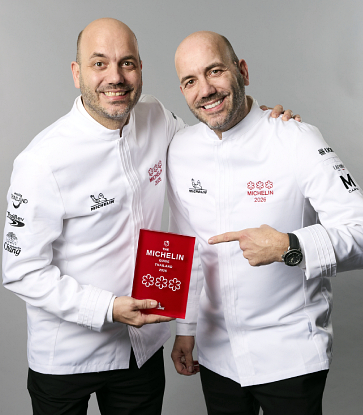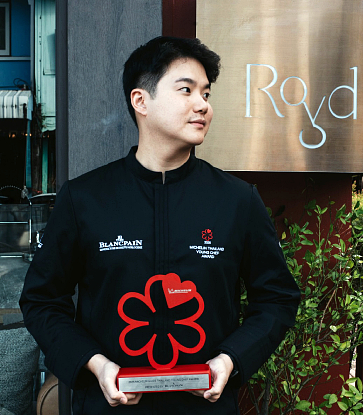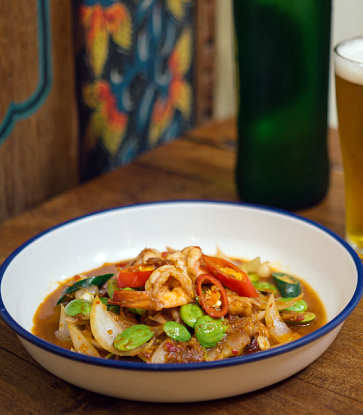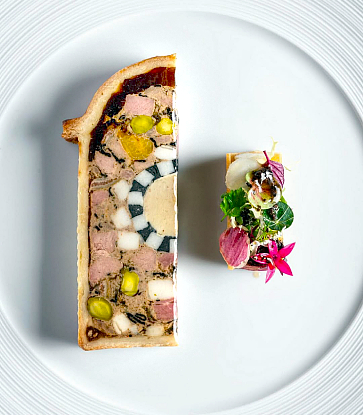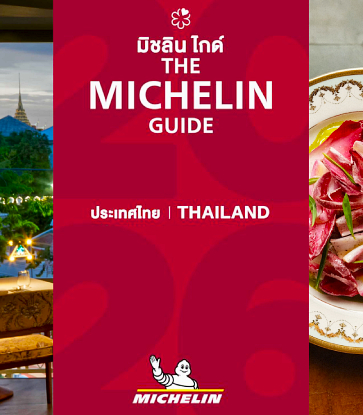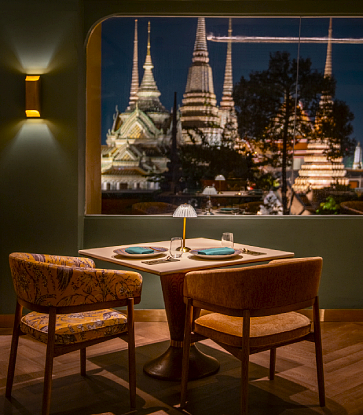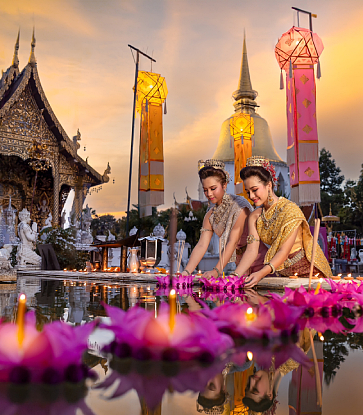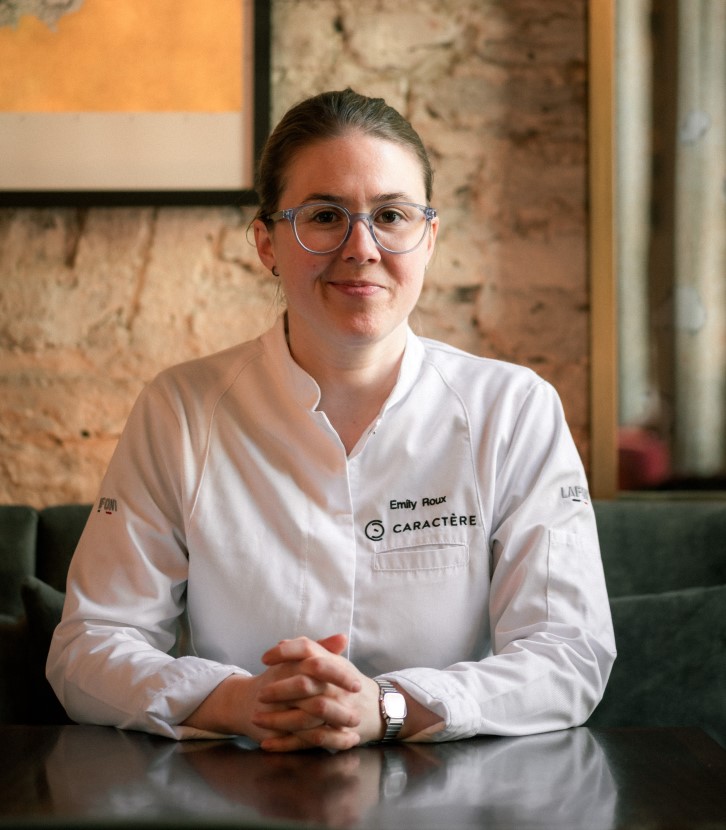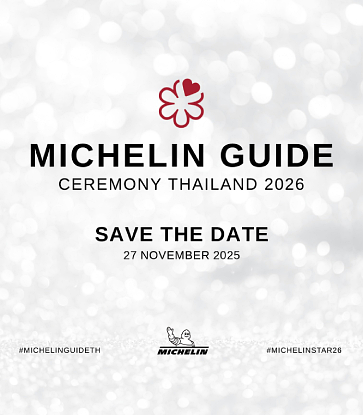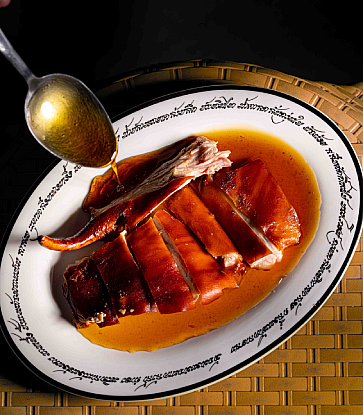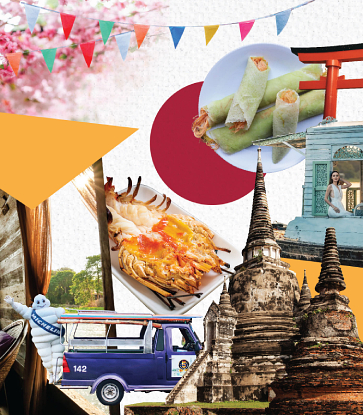"I’ve been in the restaurant business since 1998 in New York City. Actually, I hated it when I first started, but I had no choice because I had to work to get paid. Once you start doing something often enough, you open a can of worms. You want to learn more about what you do and you soon become addicted to it even though you hate it."
How did you know cooking was your calling?
I started working in a restaurant part-time while going through school just to make extra money. The other reason is that I have attention deficit disorder (ADD). Working at the restaurant, things could go wrong all the time so you kind of work on the front line. It’s a constant adrenaline-rush when you have to serve 400 customers in a few hours. You simply can’t afford to set a foot wrong. Once you make a mistake, you screw up everything else, so I’m addicted to it. First, I’m just an adrenaline junkie. Once you overcome the fast-paced environment, you can focus more on the food. You see food like you see art and you see it all in abstract. There is no right or wrong when it comes to flavour. It’s just you achieving that perfect technique, sequence, and cooking style. That’s what gives me passion.'

Is that why you set up a restaurant in New York?
Yes. Before I had my own restaurant, I worked at several restaurants doing nothing but working with great chefs and learning from them. I just did whatever they told me to. ‘Yes, chef!’ Do whatever they say. That’s how I learned to do things faster. If I have to cut vegetables, I’ll learn how to cut them faster so I can move on to the next station and learn more. I repeat this process over and over again. From one restaurant, I hop on to the next and the next. Mind you, I wasn’t quitting, but simply working to a certain timeframe. I’d say, “Chef, I want to learn more from another restaurant” and the chef would recommend a new place for me to go to. That’s how I learned. I’ve worked in Japanese, French, Italian, and many other restaurants.
One day, I came across a Thai restaurant. I was looking at it and read this sign that said ‘lunch special’ where they probably give you a soup, a salad, an appetiser, a soda, and three spring rolls. It probably cost USD7.99, 8.99. This price tag meant it was impossible for them to offer quality Thai food. That was when I told myself that I wanted to open a Thai restaurant and make sure that I use ingredients I remembered from my childhood – the same exact flavours. It’s like your first love. You never forget it. I wanted to do that. Spicy food has to be spicy food. Chef is like an artist, you are a DJ, people come to see you spin. They are not going to say “hey, play this song!”. They listen to your spin. So if you represent Thai food, you must bring out absolute Thai food.
I opened a restaurant called Rhong Tiam and for six months, I had no customers and I nearly lost hope. One Wednesday, I took the subway and walked to the restaurant and from probably a mile away, I see a line for my restaurant snaking down half a block. First thing I thought was, “Sh*t! Someone died in front of my restaurant!" Then I thought, “Is there a fire? Is it health department?” As I got closer, I saw people carrying a newspaper. In Thailand, usually when people die, you cover up the body with newspapers so I’m like “Sh*t! Someone really died in front of my restaurant!” When I walked past, customers saw me and started staring. So the thing is, the New York times had written a spread about my restaurant and that’s why the people were there. The lines never stopped from that day on and the MICHELIN Star came next in 2010. That’s how I started.

Tell us about your restaurants in Bangkok.
In Bangkok, I have 2 concepts. First is Eat Pad Thai or Pad Thai Fai Ta Lu (Bib Gourmand), which is 100% street food. You work with strong fire where you control the heat. It has to be at least 120 degrees because you have to cook from the outside to the inside. You don’t want the food to die so you don’t cook with a low fire. You don’t simmer and you don’t kill the food.
Another concept is Table 38, which is also street food, but then a lot of people say when they want to make fine dining, ingredients have to come from France, you have to import caviar or include some ingredient which is hard to find to raise the value of the dishes on the menu. The place has to be bling bling, the plates have to be expensive, glassware and silverware have to be top-notch.
But Table 38 is about bringing two flavours of the original ingredients and keeping the most important thing about food which is nutrition. When you cook the food to a certain degree, anything above 100, actually anything above 80, some above 100, you pasteurise it. Once this happens, you’ll kill the probiotics and the enzymes, so the medicine in the food is all gone. We eat because we want to be healthy. That’s why you see people or dogs in the jungle, they just eat natural food. They’re stronger than the people and dogs in the city. So, at Table 38, I’m bringing Thai street food and comfort food together using today’s knowledge to tell yesterday’s story by using speed and sound in extracting the flavours.
For instance, honey. You can eat it raw, or you can eat it, I’d say, cooked. You warm honey up. Anything over 70 degrees, and you would’ve killed the yeast and enzymes in the honey. When you cook with sound for a short period of time, you still have enzymes and probiotics because sound can only go up to 32°C. You get more flavours out of it. That’s what Table 38 is about. It’s about giving time to food and bringing out the flavours of each ingredient without tampering with nutrition.

Do you have any specific connections to northern Thailand, specifically Chiang Mai?
Yes. Actually, I love most of the ingredients from the northern part of Thailand. Because of the high altitude, there’s more bouquet, more floral notes in the produce. I’d say all ingredients from the north or anywhere from a higher altitude (soil quality, thinner air) - even meats, herbs - taste better. I’m especially in love with honey. The flavour of honey up north is like nowhere else. Every year, the flavour changes because of what they grow. That’s why I choose to use honey when I cook. Same goes with vegetables. If I had to compare vegetables from Chiang Mai to boxing, I’d say this is more like a fast punch where ingredients from the south is more like a heavy hook. I love ingredients that are bright and full of bouquet.
Can you tell a bit more about the honey you will be using for your appetizer at the MICHELIN Star Revelation’s gala dinner?
The honey I’m using now is called Nam Phueng Prong which is from Hin Lad Nai. It’s a village of about 106 inhabitants, all of whom help in building hives for the wild bees. The villagers would take turns going up to the mountains, actually, sleeping up in the mountains to make sure there are no forest fires. The wild bees migrate from different parts of the mountains to come here. The honey produced here is 100% natural and no chemicals are used. That’s why I choose honey from here. It’s sustainable and eco-friendly.
What does it taste like?
Since their hives are closer to the ground, there’s an earthy taste to it. You can taste a bit of the acidity from different pollens, and a mild sweetness with a subtle and bitter end. That’s what’s special about these particular hives. Other kinds of honey will not have a bitter end.

You were talking about the sourcing process. How important is it to you?
It’s really important to know your suppliers. When I source, I need to go to the supplier, talk to them and see how they live, see their habitat, and taste the products. Of course, when it comes to this honey, the taste will vary from one day to another. It’s like lemon. You’re not going to have the same acidity from lemon because it’s natural. The most important thing is to know how they harvest the honey, how they take care of the forest. By using ingredients from the right source, you’re not supporting the wrong cause. If you use the wrong supplier, you’re playing a part in the destruction of the environment.
Do you have a special technique to make the most out of the honey that you’ll be using at the MICHELIN gala dinner?
With honey, you see, the longer we keep it - unless it’s stored in cold temperature – the more it will ferment, and that’s what we’re after. Fermented wild honey contains enzymes. My technique is, again, using today’s knowledge to tell yesterday’s story. I use sound to bring out the flavour of the honey and stop it fermenting by not killing the medicinal properties of the honey. So, basically, I’m going to homogenise chillies and honey together with sound and speed.

What does sustainability mean to you?
The most important thing is for us to stop using pesticides. For example, if you grow a fruit, there’ll be worms that come to eat this fruit but there will also be birds that come to eat the worms. We should let nature take care of everything. When nature cannot produce enough, that’s not sustainability. You need to get a perfect eco-system. For example, there’s the Queen bee, worker bees and warrior bees inside and you see two wasps waiting outside trying to eat the Queen bee. If you own a bee farm, you are going to kill that wasp or use chemicals to kill it which will, in turn, mean that the rest of the bees will be chemically-induced. The honey that comes from these bees will be chemical-induced. So my point is - don’t kill that wasp because there are bigger wasps that will eventually eat it. Nature will take care of itself as long as you don’t excessively take from nature. You take things, you give back. You depend on nature and nature will give to you. That’s sustainability to me.
How do you integrate food waste prevention at your restaurants?
I don’t believe in food waste. When there’s food waste, you waste money. The most important thing is, when you have food waste, that waste produces gas that destroys the ozone layer. I make sure I make use of everything when I cook. With whatever is left, I transform them into enzymes and fertilizers to grow something else.

What’s your favourite northern Thai dish?
Khao Soi is my favourite northern Thai dish. It has all the elements of a good dish – the crunchiness from crispy noodles and the pickled cabbage, fresh flavours from the garnish, not to mention the acidity from the lime, some sweetness and spiciness - it’s got all the elements in one bowl. It’s a very complex dish.
What’s your favourite restaurant in Chiang Mai?
There are many but there’s one in particular I can’t take my mind off. No matter where I go, I still talk about Badboys Valley. It’s a restaurant on top of a mountain and Yot and Kui are the chefs. The first time I experienced this restaurant, I felt like I was in the movie Beauty and the Beast where I’m not the beast but the beauty, sitting at the stunning dining table full of big bouquets. The kitchen is so small, with two fridges. The couple just looked like my grandmother. They grow their own rice and flowers and put in the time and effort to cook each dish. I appreciate when people put in time to cook food.
What are some of the global trends you see happening in Thailand, especially in Bangkok?
I’d say sustainability, zero-waste, and eco-friendly concepts are the leading trend. That’s the only way that this can pan out. If we keep doing what we’re doing right now - taking more and not giving back to the nature, one day, we’re just going to run out of resources.

What do you hope for Thai cuisine in the coming years?
The presence of the MICHELIN Guide in Thailand has really elevated the quality of cuisine - especially Thai cuisine - in a very good way and I see it escalating further. I say there are many restaurants where chefs are taking a “food, ingredients first” approach, not money. I think more and more people will want to raise their standards. Thai cuisine is going to evolve for sure.
What does the MICHELIN Guide mean to you?
The MICHELIN Guide represents standard, and it represents experience. With the Michelin here in Thailand, chefs feel they need to do better. It’s like, you know, getting accepted by a world-renowned brand. It’s a barometer.
What makes you happy?
I get to do the same thing over and over again, and I’m going to make sure it’s perfect. That helps to cure my ADD. Cooking Thai food and letting the world know about it makes me happy.
In the US, you were already recognised by the MICHELIN Guide. Here, in Thailand, you have a Bib Gourmand for Eat Pad Thai. What’s the key to your success? Any advice for young chefs?
There’s a privilege in being a chef. It’s like being a doctor. Once a doctor wears his white coat, he’s the one in charge. Once you’re a chef, you’re behind the stove and responsible for choosing the ingredients and making food for thousands of people. My advice to achieving success is to set the bar very high for yourself and to keep on pushing. Never lower your standards for anyone. I nearly went out of business after six months, but I never held back on the garnish – not even once. If you’re opening a restaurant you can’t let anything slip, not even for just one minute. You just have to raise the bar and be persistent.



